Tolar HashNET review of the ICO project
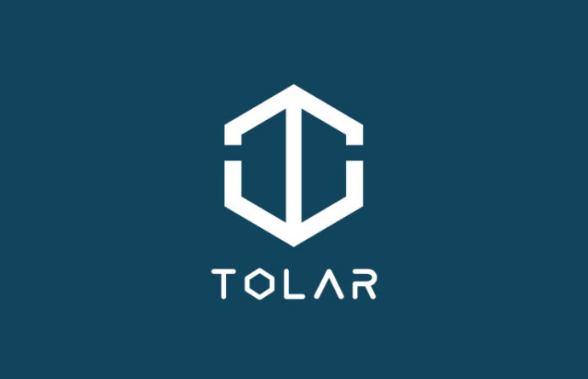
METRICS
Rating*: 10/10
Trackers rating: ICOBENCH-n / f, FOUNDICO-n/ f, TRACKICO-n / f, ICOHOLDER-NA, ICOMARKS-n / f, ICOBAZAAR-TBD, ICOCRUNCH-n / f, ICOEXPERT-4.7, ICODROPS-NA, ICORATING-NA, WISERICO - n/ f, TOKENTOPS-n/ f, PROFITGID-n/f
Bitcointalk: no
Method of investment attraction: ICO
Softcap/hardcap / collected: 20,000 ETH / 45,000 ETH / 20,000 ETH
Venture investors: Blockground Capital, Wandarin, Blockmatrix Capital, Carnaby Capital and others
Partners: investors and also as partners.
MVP: Yes
Site: normal
Whitepaper: English. - 13 p., Rus. - 8 p.
Roadmap: 2nd quarter 2019
Category: platform for decentralized applications and smart contracts
The probability of a Scam**: low
Time/bonuses: privatesale ended. Presale is scheduled for August, crowdsale for September. The price privatesale was 0,000120879 ETH 1 TOL (for deposits more than 50 ETH. 20% bonus included in the price). The price presale will 0,000131868 ETH 1 TOL (for deposits of 10 to 49 ETH. 10% bonus included in the price). Crowdsale price: 0.000145055 ETH for 1 TOL (1 to 9 ETH without bonus). Bonus tokens will be locked for 3 months. Team tokens are locked for 24 months.
Total emission: 1 billion tokens.
Distribution of tokens: 35% - tocancel; 32% - development Fund; 8% of the miners to start; 20% founder; 2.5% of the developers; 2,5% - advisers.
Burning tokens: no (to be used for business development)
Repurchase note: no information
The functionality of the token: cryptocurrency
Howie test: Yes (only available on exchanges)
Blockchain: first Ethereum (ERC-20), later blockchain
Audit smart contract: Yes (prodemonstriruet later before krautsalat)
Mining: Yes
Jurisdiction: Croatia and Slovenia
RPC/Whitelist: there is/there are
Github: not available
Escrow: no information
Accepted currencies: ETH, BTC, Fiat
Описание проекта:
Tolar HashNET - это проект, который построен на принципах масштабируемости, скорости транзакций, безопасности, справедливости и децентрализации, использующий технологию распределенного реестра (Distributed Ledger Technology (DLT)) и консенсусный алгоритм, который сохраняет все положительные характеристики блокчейн-технологии и увеличивает пропускную способность до более чем 200 000 транзакций в секунду.
А с учетом того, что проект также подразумевает запуск децентрализованных приложений на своей платформе и использует в своей реализации технологию DAG, то в лице проекта Tolar HashNET имеем конкурента самой технологии блокчейн.
Method of analysis:
First, we look at how we can earn, then we look like we can throw and then move on to the token
Introduction
Project Tolar-HashNET drew our attention to its 3rd place in the rating Of I Pancakes (Ian Balina).
This person is known for being able to pump a HYIP around projects for which he subscribes.
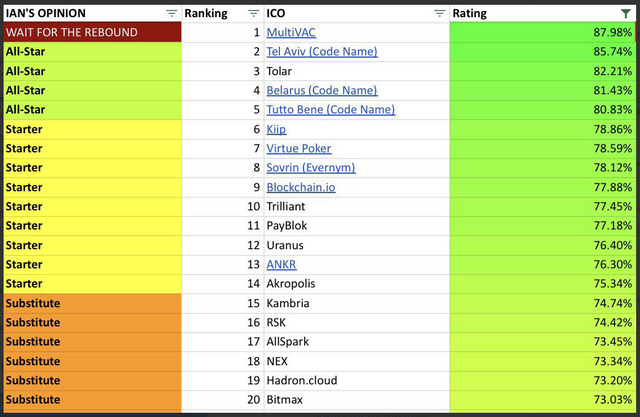
Overview Pancakes are on the official channel of the project Tolar HashNET on Youtube. So balina 100% signed up for this project.
How we can earn
The Tolar HashNET project is implemented using DAG (Directed Acyclic Graph) technology - a directed acyclic graph.
At its core, DAG is a competitor of the blockchain itself.
Hence the prospects of the project as an alternative to the blockchain, as Tolar HashNET is one of the first to use this revolutionary technology.
Problematics
There is no doubt that blockchain technology is revolutionary. However, performance, ease of use and quality of service leave much to be desired.
As the team says they have a solution to this problem.
HashNET consensus uses the "redundancy reduced gossip" and "virtual voting" protocols based on distributed computing and theoretical computer science algorithms, which provide a fair and fast, problem-resistant Byzantine generals Byzantine fault tolerance (BFT) consensus algorithm.
It is a new consensus-changing platform based on the innovative development of the Hashgraph methodology, and is designed to work in an unprotected (public) network, thus encompassing a larger community.
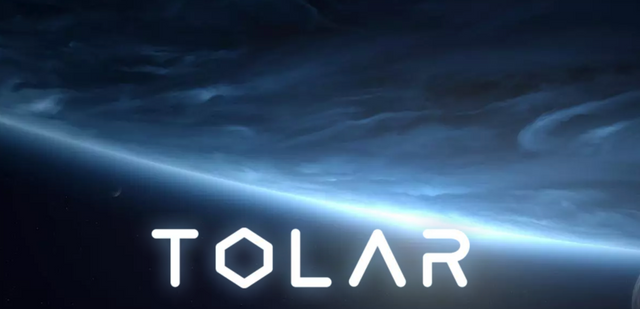
Business model
The main characteristics of HashNET are:
- transparency (distribution of public funds and voting process is 100% transparent);
- speed (network bandwidth can handle 200,000 transactions per second);
- mobile compatibility (HashNET can be run as a full-fledged node even on a smartphone);
- scalability;
- decentralization (Tolar HashNET has a Magnum Consilium management system in which stakeholders and investors * will have the right to vote, thus taking part in the improvement of the HashNET network).

HashNET is a new solution to the computational and communication difficulties in handling large public distributed registers.
The key innovation is an effective asynchronous distributed consensus Protocol on the corresponding structure of the acyclic network with the directed mode.
The consensus Protocol belongs to the class of gossip-based protocols, which provide advantages over the structural algorithms of group communication, as they can handle large group sizes, sporadic sources, high user outflow and random network failures.
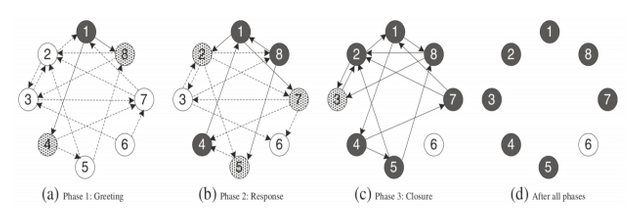
One of the main goals of HashNET design was to significantly reduce the computing and communication resources required to operate and maintain the system.
To this end, the team is developing a Protocol for the reduction of redundancy (RRG) for the transmission of information via the relevant network. Such RRG protocols provide significantly lower traffic load than traditional push-based gossip protocols and traditional push-pull gossip protocols, while maintaining the same probability of successful delivery.
As RRG and other asynchronous distributed consensus protocols provide communication and computational efficiency, further improvements are needed to handle large, fast-growing systems.
Therefore, it is extremely important to implement the agreed Protocol in such a way as to minimize communication load due to the transfer of information between nodes (nodes).
However, the command takes advantage of the fact that each node has sufficient information about the entire HashNET structure, including information about events and their distribution over the network. This eliminates the need to send them and therefore significantly reduces communication requirements.
An important prerequisite for effective consensus calculation is that the total number of nodes ("voting participants") must be known. This makes it difficult to implement using an “open book” because the number of nodes can vary greatly. This difficulty was solved by assigning each node a vote weight equal to the share of the time. Since the current volume of network coines is known and fixed at any given time, this approach ensures correct consensus calculations. Thus, by assigning weight to the node according to its share in the network, we are able to calculate votes instead of waiting and/or sending actual votes over the network.
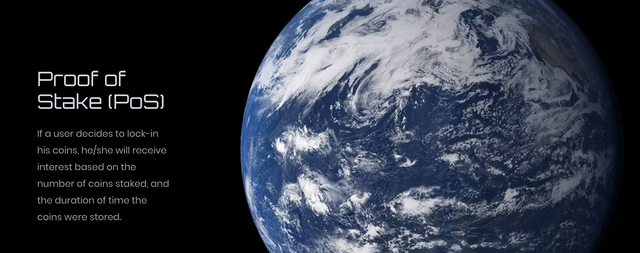
Because the Protocol provides a Proof-of-Stake consensus, it offers qualitative advantages over Proof of Work.
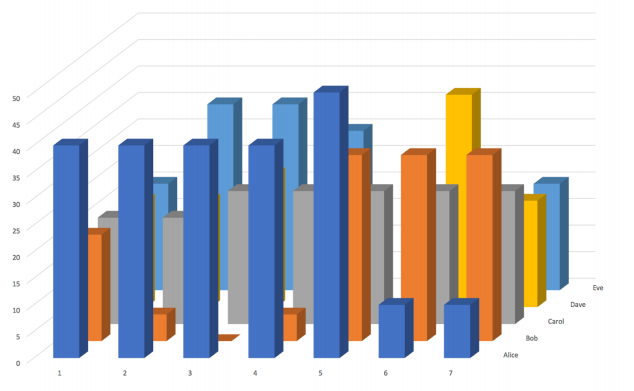
In addition to the Protocol based on ROS, a reputation-based system is introduced as an additional monitoring and verification mechanism. This allows to measure the "seriousness" of a violation of the protocols of the network.
All nodes whose reputation lags behind a certain negative reputation threshold are not allowed in the network for a period of time determined by the exponential failure algorithm.
Consensus implementation refers to a class of so-called iterative randomized approximate consensus algorithms. The goal is to allow fault-free nodes to reconcile values by overcoming obstacles created by (possibly incorrect or unreliable) information distributed by defective nodes.
Improvements to storage are based on concepts such as Confidential Transactions and One-Way Aggregate Signatures (OWAS) that provide confidential exchanges and better adaptability.
The basic idea of OWAS is that when outputs are created and destroyed, it is the same that they never existed.
Thus, it allows you to use even modern standard smartphones as nodes for work.
One of the features of the development of HashNET is a democratic management system that allows you to involve the entire community and is open to all.
Once the desired bandwidth is reached, Ethereum Virtual Machine (EVM) will be deployed on top of the network.
The combination of EVM and HashNET provides a fast and reliable platform for decentralized applications.
The project is seriously going to compete with Ethereum, and Hyperledger.
Mining will operate on the principle of PoS.
The network also assumes the operation of master nadev, which are designed to provide a much better decentralization of the network and which will be able to receive much more compensation than in conventional nodes.
The node wizard collects transactions in its pool and then sends them to a random node.
As network events propagate through the network, they create a local DAG on each master node, which is eventually negotiated over the network.
Minimum hardware requirements for master nodes: a Quad-core 64-bit processor, 16 GB of RAM, 128 GB of free disk space, 50 Mbit/s Internet connection and a unique IP address. In addition, it is necessary to have a minimum of 500,000 tol tokens in storage.
Roadmap
Road map for almost a year-until the second quarter of 2019.
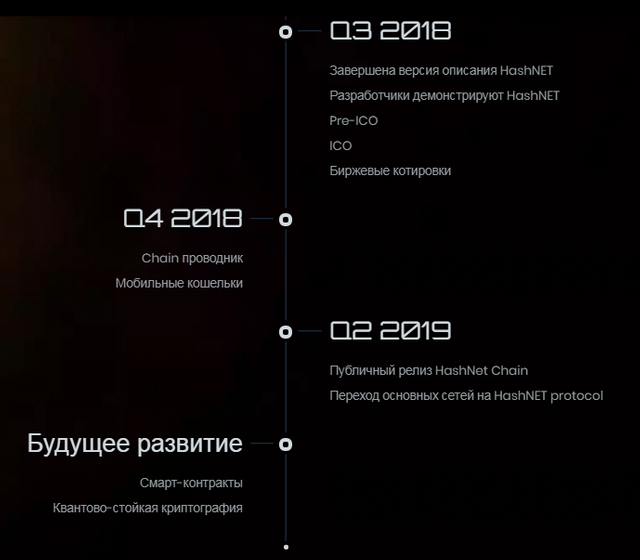
Reality
It's real. Although The github project is not available.

But there is no doubt, given the fact that the test is not already demonstrated.
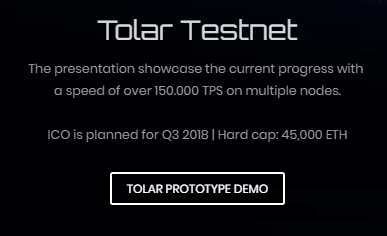
Video presentation of the prototype is:
Team
The team consists of so-called Fund Board (8 people), technical team (8 people), business units (8 people) and 14 of advisers.
Introduce some.
Josip Maricevic-founder and technical Director. He has been studying blockchain for the last two years. Worked at Shazam. He is the owner of the MoonCode software development Agency, which offers services for the development of custom blockchain projects, alternative cryptocurrencies and Ethereum smart contracts.
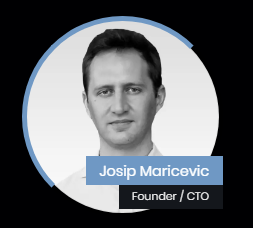
Drazen Kapusta is the founder and Director. Entrepreneur with 30 years of experience. He is also the Director of COTRUGLI business school, the leading business school in South-Eastern Europe, where he successfully helped develop the World's first blockchain MBA program and the Certified Blockchain Developers Program. The Blockchain is the President of Adria, the famous blockchain conference and the Association of South-East Europe. He is the President of the COTRUGLI Foundation, which is focused on the organization and implementation of numerous humanitarian projects.
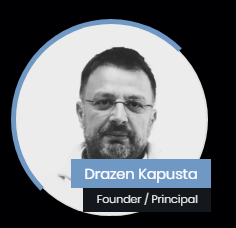
Mario Vojvoda is the Director of information technology. He is an it professional with more than 15 years of experience in the telecommunications industry. A former member of the Board of Combi's. Former it Director T-Mobile Netherlands and technical Director of Iskon.

Igor Jurkovic is the main developer. Currently, he is mainly interested in how to use current cryptographic and distributed registers in a wider use. Worked on Facebook for a few years.
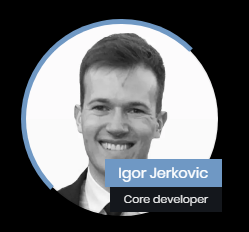
Sensei Fnatic is the main developer. Research of new distributed consensus algorithms and their implementation. Worked as a software engineer at Memograph. He also has experience in Google, first as a technical specialist, and then as an engineer for the reliability of the site.

Bojan Hadzisejdic-business development Manager. 15 years of experience in the it industry. He began his professional career as a business development Manager at Microsoft (2003-2015), eventually becoming a cloud transformation consultant and Director of Nephos.
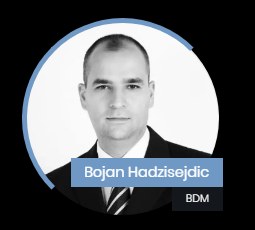
Advisors
Manuel Alonso Cano-doctor of philosophy, is a Professor of business school COTRUGLI. Doctorate in Economics. Author of “Political Marketing”, “Direct Marketing 2.0”, etc.
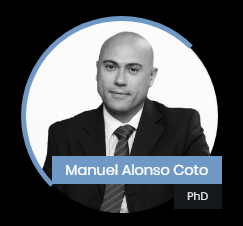
Peter Merc-blockchain enthusiast. Co-founder of legal consulting company Lemur Legal (Slovenia). He is the leading coordinator of Blockchain Think Tank Slovenia, a non-governmental organization whose main goal is to create a platform for blockchain knowledge in Slovenia and for communication between the private and public sectors. He worked in the banking sector, where he is still active as a member of the Supervisory Board of the Slovenian system Bank. In addition to Tolar HashNET, he advises several more ICO-projects.

Navien Kapoor - blockchain-adbayzep. TOP 5 on Icobench. Experience of participation in more than forty ICO. Responsible for investor relations, articles, news publications, etc.
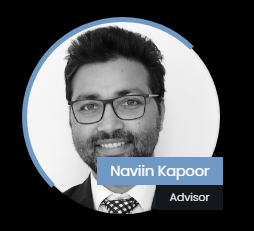
Valerio Opacic-as a member of the Tolar HashNET team, is responsible for the security of the Hashnet Protocol. 26 years of experience working mainly with Global Identity and as an access and security services Manager at McDonald's Corporation.

Partners
Partners are investment funds.
Investors
Among investors, a considerable number of different capitals.
Blackground Capital-invested in OneLedger, Quadrant, etc.
Wandarin-invested in OneLedger, Ontology, etc.
Blockmatrix Capital-invested in 0 x (ZRX), ICON, Wanchain, TRON, etc
Carnaby Capital-invested in 0 x (ZRX), Nucleus Vision, ICON, etc.
and other funds.
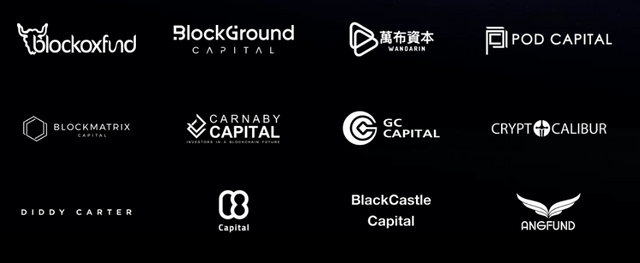
As us can throw
There is no intentional bench. Technical can also be excluded.
Since the test is no network already shown and everything works.
In addition, investors, not to mention Jan Balin, know their business.
Goods by person
Private sale is over.
Presale is scheduled for August, crowdsale for September.
Registration to whitelist is open. KYC procedure is mandatory.
Soft cap-20,000 ETH (already achieved).
Hardcap is 45,000 ETH.
The total issue is 1 billion tol tokens.
The price privatesale was 0,000120879 ETH 1 TOL (for deposits more than 50 ETH. 20% bonus included in the price);
The price on the presale will be 0.000131868 ETH for 1 TOL (for deposits from 10 to 49 ETH. 10% bonus included in the price).
Crowdsale price: 0.000145055 ETH for 1 TOL (1 to 9 ETH without bonus).
Token distribution:
35% - tocancel;
32% - development Fund;
8% of the miners to start;
20%- founders;
2.5% of the developers;
2.5% - by adviser.
Bonus tokens will be locked for 3 months.
Team tokens will be locked for 24 months.
The plan is to master the investments in the following way:
55% - operating expenses;
30% - research and development;
• 10% marketing;
- 5% - legal support.
Token
The total issue is 1 billion tol tokens.
First on the ERC-20 (tokencache they are sold).
After the launch of the main network - on its own blockchain.
Verdict
To say that the project is very HYIP, I would not say. But it is.
Ian balina is such a man that I think even from a deliberately bench project can make a HYIP. Of course he doesn't. About his reputation he cares, though there are punctures )) (history of the exchange COBINHOOD). But in General it is all OK.
As for the bench, it's definitely not about the project Tolar HashNET. As for me, the idea of a fully decenralised Hedera Hashgraph is more than cool.
The audience of the project site is growing, but not only thanks to Balin, but also such sites as Icodrops, which has not yet put its assessment. But I think that soon will put, given the list of investors of the project and the amount already collected.
To krautsalat there is still time, so I think HYIP is still the same.
In the meantime, register in whitelist, if someone 2-3% of the portfolio commensurate with 1 ETH. This is the amount that has been announced as the minimum for investment. In this case, you can take on the average.
Or we watch the project and take it on the stock exchange after the listing, which is scheduled for the 3rd quarter of this year. But as always after I take a dump and them.
Although in the fall can be anything and maybe the trend of the market will change to bullish (but it is not accurate) and then the situation analyzing the news background.
My evaluation of the project is 10 out of 10.